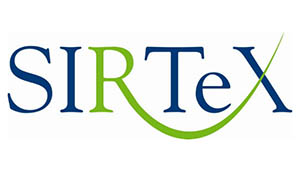 Sirtex Medical (ASX:SRX) said today that it’s yttrium-90 resin microspheres did not extend survival significantly compared to Bayer’s sorafenib in a study of patients with hepatocellular carcinoma. Although the 459-patient trial did not meet its primary endpoint, the company reported that patients treated with its microspheres experienced less than half the number of severe, treatment-related adverse effects than those who received the standard, twice-daily systemic treatment with sorafenib.
Sirtex Medical (ASX:SRX) said today that it’s yttrium-90 resin microspheres did not extend survival significantly compared to Bayer’s sorafenib in a study of patients with hepatocellular carcinoma. Although the 459-patient trial did not meet its primary endpoint, the company reported that patients treated with its microspheres experienced less than half the number of severe, treatment-related adverse effects than those who received the standard, twice-daily systemic treatment with sorafenib.
“Neither sorafenib nor SIR-Spheres Y-90 resin microspheres produced a statistically significant difference in overall survival of the patients we studied,” Dr. Valerie Vilgrain said in prepared remarks. Patients in both arms had a median survival length of 9.9 months following treatment.
“In terms of what matters for patients, the findings from this first large head-to-head comparison of liver-directed Selective Internal Radiation Therapy (SIRT) and systemic chemotherapy with sorafenib also show clearly that liver-directed procedures with SIR-Spheres result in a significantly better tolerance of treatment and quality of life,” Vilgrain added. “I believe this consideration should be a critical factor in selecting first-line treatment for this patient population in the future.”
The company’s Y-90 resin microspheres are approved in Argentina, Australia, Brazil, Switzerland, Turkey and the EU for the treatment of inoperable liver tumors. The minimally-invasive therapy delivers high-energy beta radiation directly to tumors, according to Sirtex. Interventional radiologists infuse millions of resin microspheres using a catheter into liver arteries that supply blood to cancerous tumors.
Sirtex argued that because its technology uses the tumors’ blood supply, the micropsheres can selectively target tumors and leave healthy tissue alone.
In its most recent study, patients treated with SIR-Spheres experienced a median of 5 treatment-related adverse events compared to a median of 10 events for patients who received sorafenib. The company also said that side effects such as fatigue and abdominal pain were less frequent and less severe for patients receiving SIR-Spheres compared to their counterparts.
Study participants also filled out quality of life surveys at 3 month intervals after their initial treatment and Sirtex reported that patients treated with SIR-Spheres maintained their health status throughout the study, while patients treated with sorafenib had a significant decline in quality of life.
Although the company’s microspheres missed the study’s primary endpoint, management seemed optimistic in a call with analysts.
“We are truly excited by this opportunity to go out and market SIR-Spheres with this new data in this important indication,” interim chief executive Nigel Lange said, according to the Financial Review.
SRX shares were trading at $14.80 apiece following news of the trial, down nearly -13%.
